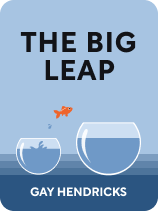

This article is an excerpt from the Shortform book guide to "The Big Leap" by Gay Hendricks. Shortform has the world's best summaries and analyses of books you should be reading.
Like this article? Sign up for a free trial here .
What causes psychosomatic disease? How can a mental problem manifest physically?
According to Gay Hendricks, psychosomatic ailments often ensue following very positive or pleasurable experiences. For example, if you get sick on your honeymoon, this may be a psychosomatic effect of nearing what he calls “the Upper Limit Problem.” If this is the case, it may be your mind affecting your body as a means of self-sabotage, or self-punishment.
Here’s how your mind makes you sick, according to Hendricks.
You Tend to Get Sick Following Positive Experiences
Our psychological state affects our body, and it can cause illness and make us accident-prone. Hendricks suggests that if you begin to take notice of when you get ill or injured, you may see a pattern emerge, wherein these misfortunes occur just after very positive experiences in your life.
Hendricks argues that psychosomatic disease could be a means of punishing yourself for pursuing pleasures that won’t lead you to your state of fulfillment. These activities, while enjoyable, may actually be compromising your principles, and holding you back from true fulfillment. For example, you may indulge in overconsumption of material items, such as expensive jewelry or a flashy car, as a means to boost your ego. But this won’t result in sustainable happiness, so you may have a pattern of becoming ill or injured after you indulge in a shopping spree. In this way, you’re actually punishing yourself for not pursuing your state of fulfillment.
Another pattern Hendricks advises looking for is whether illness or injury might be a means of trying to prevent or protect yourself from experiencing something you’re resistant to, or afraid of. You may be unconsciously attempting to avoid something that would put you out of your comfort level. For example, if you get sick the day of an interview for a new job that would move you toward greater success, but which also intimidates you, it could be your means of keeping yourself in your comfort zone.
To address this tendency, Hendricks advises that you take notice of patterns, and begin to think of your illnesses and injuries as something you’re doing to yourself rather than something out of your control that’s happening to you. Once you start to think of them this way, you may notice you have fewer of these kinds of incidents.
(Shortform note: It’s not clear whether there is any scientific evidence for a connection between accidents and illness, and self-sabotage. It is known that stress can cause people to be more accident prone, likely because they’re not paying attention, and there are people who engage in self-harm behaviors. Also, there is ample evidence that emotional states affect our physical health. However, none of this research necessarily indicates that people are sabotaging their success and happiness by means of injury or illness.)

———End of Preview———
Like what you just read? Read the rest of the world's best book summary and analysis of Gay Hendricks's "The Big Leap" at Shortform .
Here's what you'll find in our full The Big Leap summary :
- How to overcome the psychological barriers to success and fulfillment
- Why most people have a self-imposed limit to happiness
- How to identify your own false beliefs and stop self-sabotaging






